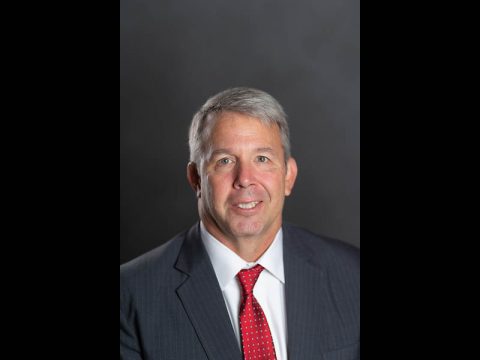 Clarksville, TN – Since Tennessee Governor Bill Lee picked him to serve as chief of staff on Tennessee’s COVID-19 Unified Command, retired Brig. Gen. Scott Brower has helped guide the state’s coronavirus response.
Clarksville, TN – Since Tennessee Governor Bill Lee picked him to serve as chief of staff on Tennessee’s COVID-19 Unified Command, retired Brig. Gen. Scott Brower has helped guide the state’s coronavirus response.

In his role, Brower – who also serves as the Austin Peay State University (APSU) military adviser in residence and is the former deputy commanding general of the 101st Airborne Division at Fort Campbell, Kentucky – has had a unique vantage point as the state navigates the pandemic.
“It’s an effort to literally, as it says in the title Unified Command, to unify the efforts of several departments in the state government,” Brower said. “The governor (Bill Lee) recognized the departments needed to work together in a manner that they are not used to. Unified Command provided the mechanism to do that.”
The command initially worked with the state departments of the military and health and the Tennessee Emergency Management Agency (TEMA).
“It has improved collaboration, coordination and visibility on all the different efforts that are going on,” Brower said. “They weren’t necessarily in conflict with each other, but they were duplicating efforts.
“By giving them visibility on what everybody was doing, it improved our efficiency and allowed for additional resources to be put toward other problems,” he added.
A ‘strong and doable plan’ for the return to campus

The Unified Command also recently started working with the Tennessee Higher Education Commission (THEC) on returning the state’s universities and colleges to campus this fall.
“We’re using the same approach with higher education as we are with many of the industries as we’ve started to reopen the economy in Tennessee, and that’s through collaboration,” Brower said. “There’s going to be a tremendous amount of good ideas that come from different college campuses.
“We can share our best practices from one school to another,” he added. “That’s the exact same approach we’ve used with a variety of industries, with the restaurant industry, the retail industry.
The Tennessee Pledge is the state’s plan to reopen Tennessee businesses safely and responsibly.
“We hope that through the collaboration, we’ll come up with a very strong and doable plan that allows for the safe return for all members of the campus, for the students, the staff and the faculty alike,” he added.
Brower noted APSU’s role in leading the way.
“We always talk about how Austin Peay State University leads,” he said. “There’s a great opportunity for us to lead and to show others how to go about doing this.”
‘The virus is still out there. It’s still deadly.’
Brower has a clear message for Austin Peay State University students and employees and for surrounding communities.
“This is not over. It’s not,” he said.
“We don’t have a vaccine in place right now,” he added. “Social distancing works. All the measures that Tennesseans have taken across the state are what has allowed our economy to start opening back up, but it doesn’t mean we can go back to how things were before.
“The virus is still out there,” he said. “It’s still deadly.”
Brower asks that in addition to practicing social distancing and other U.S. Centers for Disease Control and Prevention (CDC) guidelines people should simply help one another.
“What can you do for others? How do you look out for each other?” he said. “Is there something you can do to help an elderly neighbor or a member of your community?
“Is there a student you can help or a faculty member?” he said. “We have to continue to work together on this.”
To learn more
- For more about the Tennessee COVID-19 Unified Command, visit www.tn.gov/governor/covid-19/unifiedcommand.html.
- For more about APSU’s coronavirus response, go to www.apsu.edu/coronavirus/.


